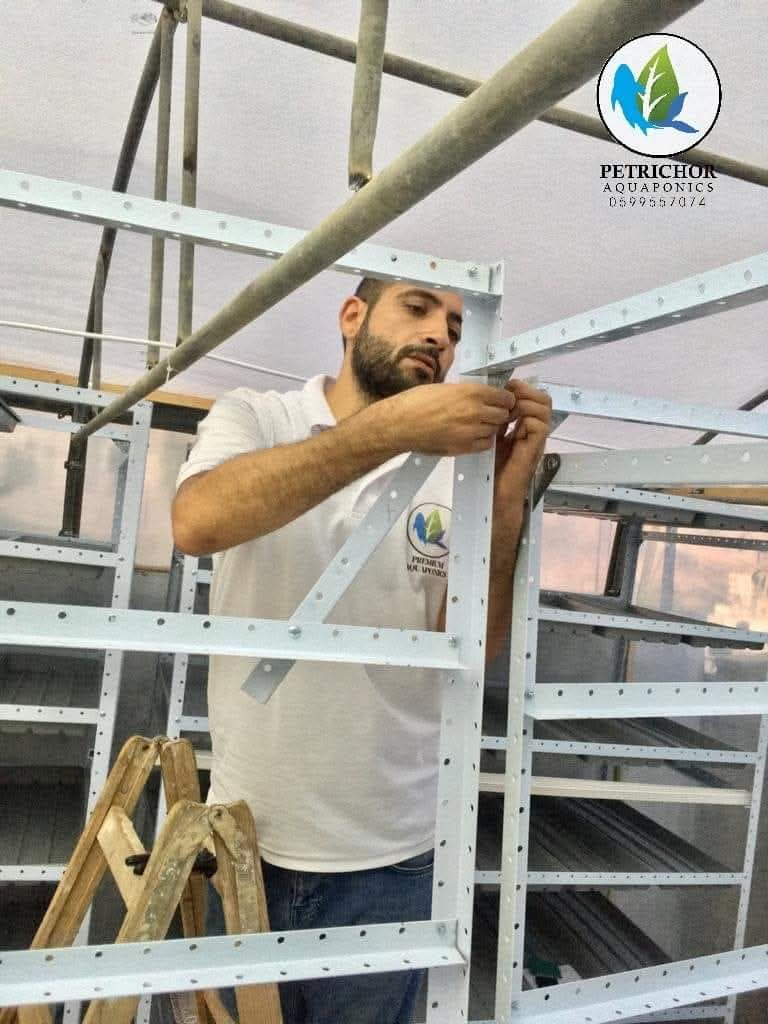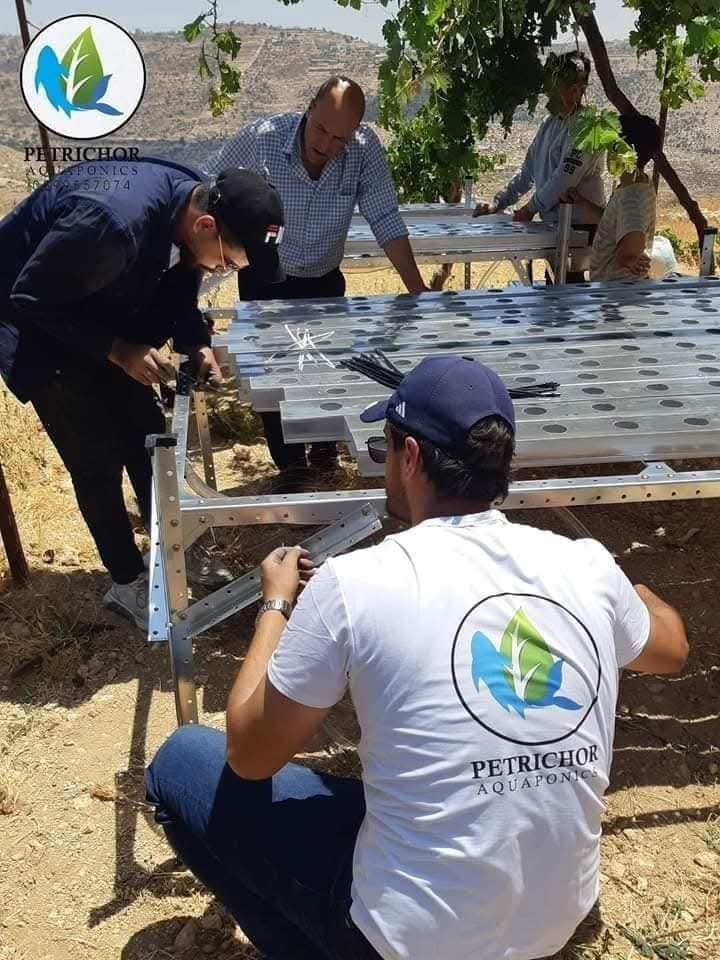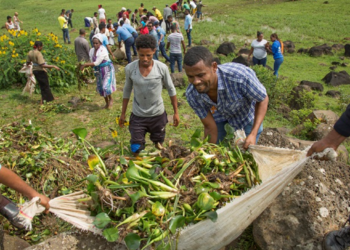Petrichor Aquaponics : Cultivating Innovation and Resilience in the Heart of Palestine – In the occupied West Bank where movement is restricted, opportunities are limited, and resources are tightly controlled an inspiring initiative quietly took root. It’s called Petrichor Aquaponics , a small but powerful project that reflects resilience, innovation, and a deep commitment to sustainable agriculture.
Founded by Maroof Rabba in 2014 and brought to life in 2016, Petrichor aquaponics wasn’t backed by large investors or organizations. Instead, it was born from personal research, hands on experimentation, and a belief in the urgent need for new agricultural methods in Palestine. Alongside his wife his partner in life and in business Maroof began designing and building hydroponic systems to offer a healthier, more sustainable alternative to traditional farming.
The idea grew out of a clear environmental and social awareness. In a region facing water scarcity, rapid urbanization, and unsafe agricultural practices, Maroof wanted to introduce a farming system that saves water, uses less space, and delivers chemical free produce. His goal wasn’t just to build a business it was to spark a transformation.

Since its launch, Petrichor aquaponics has implemented more than 100 hydroponic farms across Palestine, using techniques like NFT pipes and DB barrel systems. The team also manufactures their own components: controllers, testing equipment, aquatic plants, and even fish all locally developed.
Beyond system installation, Petrichor aquaponics offers both practical and theoretical training for farmers and enthusiasts, not just in Palestine but internationally. It’s become a go to reference for hands on hydroponic knowledge in the region.
Despite the scale of their work and the strategic importance of aquaponics, Petrichor hasn’t received any funding or support neither from local authorities nor international bodies. The occupation continues to pose major obstacles: restricted access to equipment, blocked imports, and constant delays caused by military actions and bureaucracy.

Other challenges include limited financial resources and initial skepticism from local farmers. But that resistance is gradually fading as the results speak for themselves: water efficiency, higher yields, and healthier crops.
Maroof and his wife see Petrichor aquaponics not just as a business, but as a movement. Their dream is to see this technology spread throughout Palestine and beyond enabling more farmers to grow sustainably, save resources, and produce clean food.
They also maintain strong ties with academic institutions and researchers, contributing valuable real world data to scientific studies and agricultural development.
In a region too often associated with conflict and hardship, Petrichor Aquaponics is a quiet revolution. It’s proof that even under occupation, people can innovate, lead, and inspire change. But for this work to continue and scale it needs attention, support, and solidarity.
What started in a small corner of the West Bank has the potential to grow far beyond its borders. And in that there’s hope not just for Palestinian agriculture but for our shared future.
Petrichor Aquaponics : Cultivating Innovation and Resilience in the Heart of Palestine








